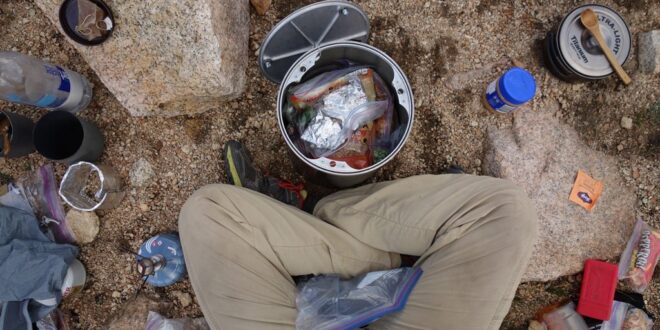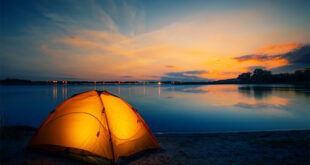Being startled awake in the middle of the night by a wild animal searching your campsite for food is one of the fastest ways to ruin a camping trip. Even though this may sound like a scenario from a horror film, it’s quite plausible.
Fortunately, it can be avoided, and the solution for camping around animals is as easy as bear-proof containers.
The sense of smell in animals is extraordinarily keen. According to some reports, black bears can detect food up to 15 miles away. Even from a close distance, the smell of food and toiletries within bear-proof containers used to store food for camping trips remains concealed. To find out more about bear-proof containers, keep reading.
What Are Bear Canisters and How Do They Work?
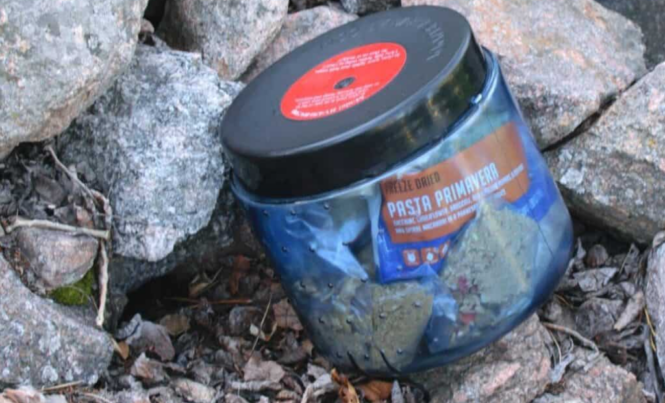
When camping in the bush for the night, bear-proof containers called bear canisters are used to store food, fragrant items, and garbage properly.
These canisters make it difficult for animals to get to your food; at most, a grizzly will interact with the canister before becoming bored when it learns it cannot open it. The theory is that bears won’t bother approaching containers once they realize they don’t make an easy meal of them because they will eventually realize this.
Bear canisters are incredibly effective in keeping animals away from your food when used correctly. They also significantly lower the risk of a negative human/bear interaction and stop animals from associating humans with food. To buy bear canisters, visit bearvault.com.
What Makes Bear Canisters Necessary?
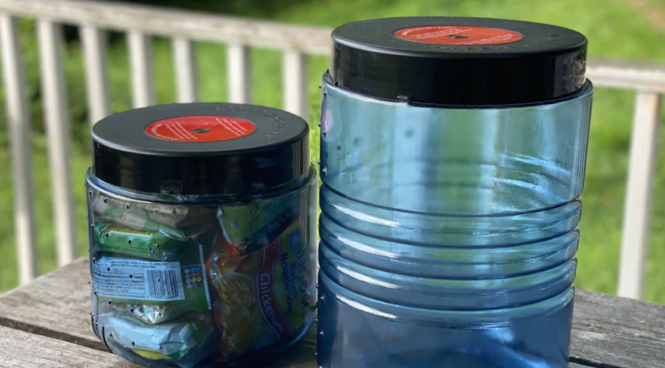
While bear-proof containers use is not required by law in the majority of hiking areas, more public lands around the country are starting to do so on an annual basis. It’s risky for animals to raid your food for several reasons.
- Once habituated to its presence, wild animals can grow dangerously dependent on human food. With bears, this may result in persistent difficulties and behavioral concerns.
- It’s possible to become stranded in the forest without enough food to leave safely if animals break into your food and devour it or destroy it.
- If you are close to your food source, you risk luring hungry grizzly or other dangerous creatures to your area, endangering yourself, your party, and possibly other hikers.
When that same animal comes expecting to find more food, failure to utilize suitable bear-proof canisters for your food might lead to problems for you and subsequent hikers.
A Bear Canister: How Do You Use One?
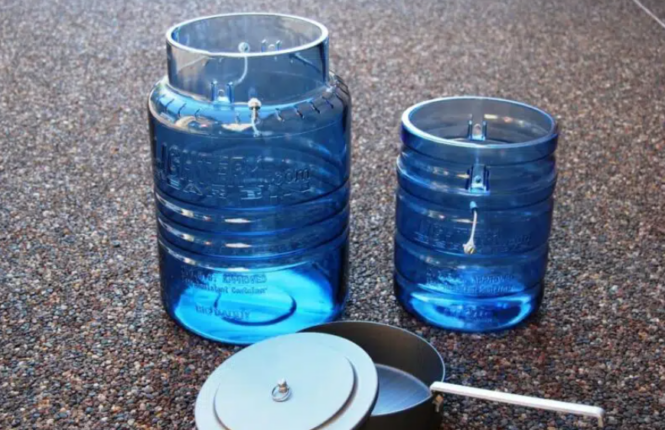
A bear canister should first be stored in a secure location. Avoid keeping it inside your tent. Keep canisters away from campsites by at least 100 yards, ideally in the shade. Cooking the entirety of your food should be done a further 100 yards from both the canister and your campsite. Be sure to keep it closed, locked, and secure at all times. To deodorize the area and stop animals from being attracted, keep the container sealed and closed.
Only when you need them should your food and other items be taken out of the container. Any food scraps or rubbish left behind after eating should be put in the container. Additionally, if there is space, keep any food residue on your cooking equipment in the canister after thoroughly cleaning it. To ensure everything will fit in the canister, test packing it at home before you even go camping.
A bear canister might be challenging to open on occasion. Since grizzlies can weigh up to 800 pounds, they must be protected from your food. Bear-proof containers with screw locks can be opened by pushing the tab through the lock while pressing the lid down. It’s just another justification for carrying a multitool, especially when the weather is chilly.
Are Bear Canisters Smell Proof?
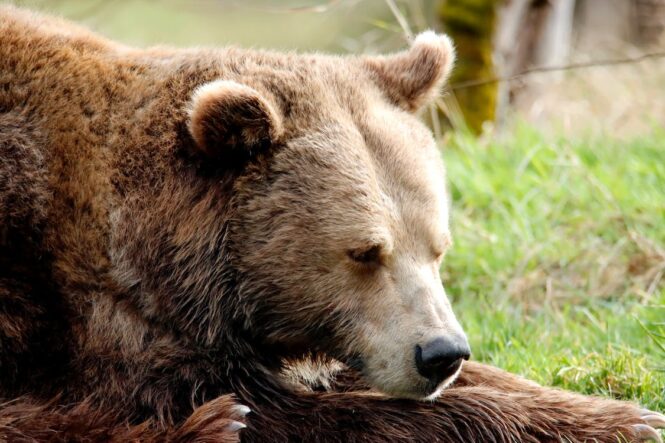
Bear canisters are not odor-proof, which is a sad reality. Bear canisters are not sufficiently insulated to completely block out smells that can draw the attention of wild animals like bears.
After all, their primary function is to prevent a bear’s nipping claws from destroying your contents by eating them. If you’re spending several days in the wilderness while camping, that becomes very important. Although some canisters claim to be odor-resistant, it’s wise to consider that whatever is being stored may still be detectable to animals. After all, when you’re alone in the wilderness, it’s better to be safe than sorry.
Bear Canister Tips
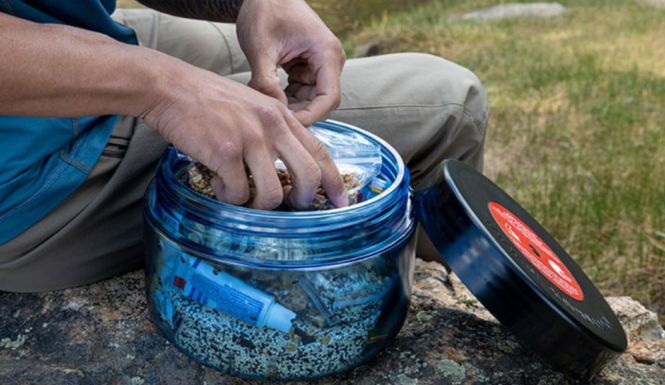
-
Reduce the smell
Use odor-repelling or zip-lock bags. Use odor-sealing bags to contain the food before placing it in the canister or your backpack to reduce the amount of aroma it leaves behind. Using a container and carrying rubbish and crumbs in your backpack won’t help if a curious bear approaches.
-
Place it far away
Place the canister one hundred feet away from your camp. It’s inevitable that a curious animal, such as a grizzly, will stop by to take a look, so it’s safer to leave your canister somewhere and invite them to take a look than to keep it inside your tent.
-
Properly package it
Because it is a large, stiff object, the canister should be packed in the middle. The weight distribution of your pack will benefit.
-
Flip and mark
Mark the canister after flipping it over. Even though bears are intelligent, they haven’t yet figured out how to twist the lid off. For the night, turn the canister upside-down to reduce their chances.
-
Open only when required
Wait until you’re ready to eat before opening food packs. This allows the odor to escape, and if you leave a bag of food in your backpack unattended, a curious animal will make every effort to obtain it.
Conclusion
No matter how secure you believe your campground to be, every camper needs a bear canister. You’ll need more canisters the bigger your squad is, but they shouldn’t be your main form of defense.
Don’t forget to pack food and toiletries in your canister. Additionally, make sure to use scent-proof bags or, at the very least, vacuum-seal them whenever possible. Nobody wants to be harmed by animals. They want a tasty snack, and your shampoo can have a fruity or honeyed scent. Reduce the amount of smell you bring with you as much as you can to ensure the safety of everyone, especially the wildlife you hope to see.
 Imagup General Magazine 2024
Imagup General Magazine 2024
